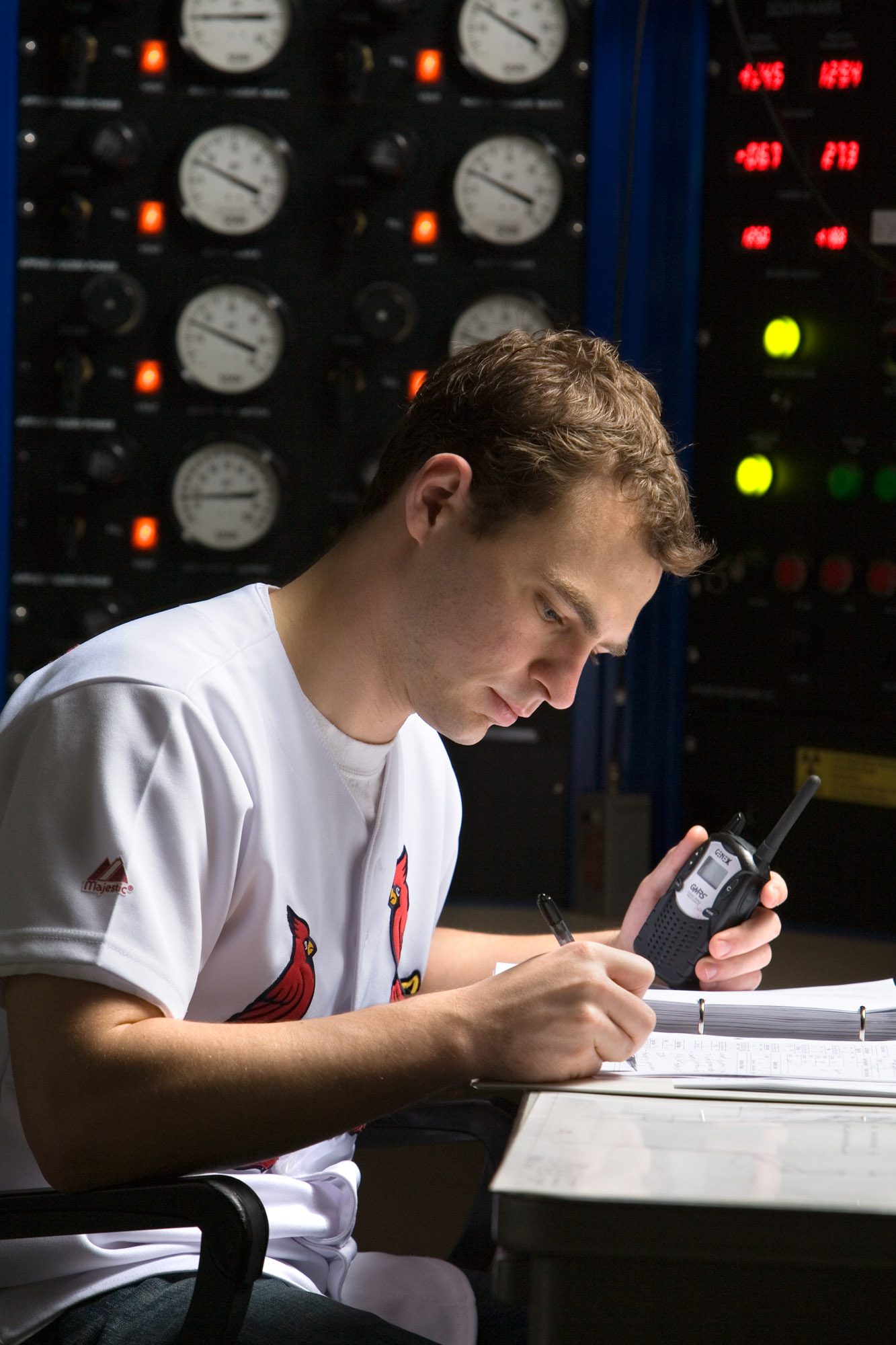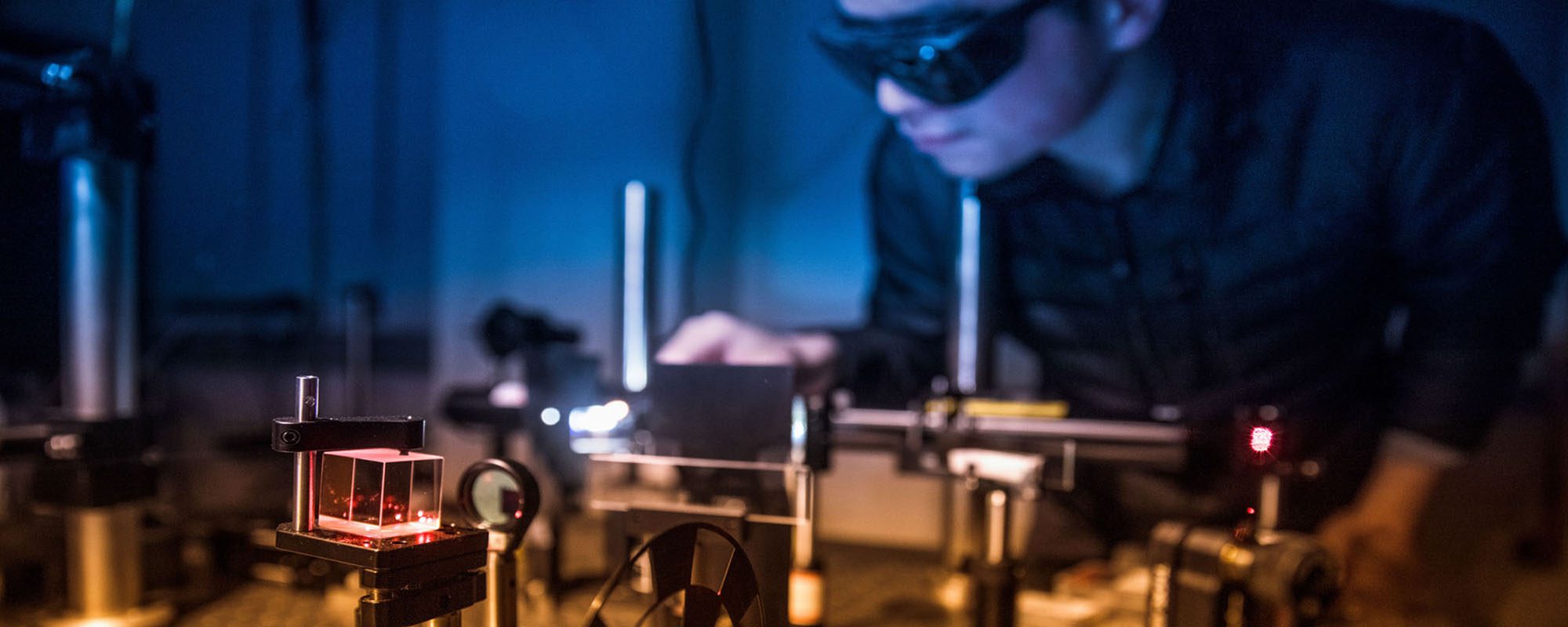This degree combines an interdisciplinary curriculum with a research or design project focused on applying physics to scientific and technological problems. This degree helps you broaden and deepen your skills and knowledge to prepare you for professional engineering work in a particular area such as quantum information science, photonic and optical physics, nanostructure science and technology, device physics, materials characterization, or computational physics and engineering. Students interested in a career in academia or research should consider applying for the M.S. or Ph.D. degree instead.
M.Eng. Program at a Glance
-
30
Minimum number of credits
-
2
Semesters
-
13
Technical sequences
-
1
Design or research project

Why do an M.Eng.?
-
Challenge
The challenge of applying physics to scientific and engineering problems
-
Flexibility
An opportunity to pursue a flexible interdisciplinary curriculum
-
Project and Leadership Experience
An opportunity for leading research projects with top scientists at the cutting edge of their disciplines
-
Technical Experience
A chance to gain advanced technical experience and specialized laboratory skills at a world renowned research institution
Curriculum and Project
The curriculum, which is tailored to fit the needs of individual students, consists of 30 credits of core applied and engineering physics courses and elective courses selected from a variety of related graduate fields, and 6 to 12 credits for a research or design project under the supervision of leading scientists and engineers.
The core curriculum consists of courses in applied quantum mechanics, statistical mechanics, and applied mathematics. Electives can be chosen from the areas of applied physics, computer science, engineering, or biotechnology. The flexibility of the curriculum allows students — in consultation with their advisor — to select a program of study to meet their individual interests and educational goals.
The following are examples of some recent research and design projects completed by students in the program:
- Chemical Synthesis and Nonlinear Optics in Microchannels
- On-Chip DNA quantification
- Fabrication of Graphene-Based Devices for the Study of Atomic Membrane Interfaces
- Silicon Nanocrystals for Solar Cells
- Engineering a radio-frequency Scanning Tunneling Microscope
- Spatially-Resolved Photocurrent Imaging of PbSe Quantum Dots
- Characterization and Measurement of Femtosecond Pulses using Autocorrelation Techniques
- Computational Simulation of Electrohydrodynamic Systems Pertaining to Micro and Nano scale Fluid Flow Phenomenon
- Compensation of wake-field-driven energy spread in Energy Recovery Linacs
- 1550nm Normal-Dispersion Femtosecond Mode-Locking Fiber Laser
- Technology Demonstration of the Scanning Double Half Wave Interferometer (DHWI) for use on the Stratosphereic Observatory for Infrared Astronomy (SOFIE)
- Vacuum ultraviolet photo ionization studies of fuel-rich ethylene flames.
Ways to Use Your Degree
M.Eng. degree recipients have access to a variety of career options. Many have chosen employment in industry, government, private research and development and the military. Some have gone on to medical school, and others have gone on to complete their Ph.D. in a wide range of technical fields.
Approximately half of recent graduates are employed in industry or research positions, while the remaining portion attend Ph.D. or professional programs in fields from biomedical engineering to acoustics, and medicine to law.
Round out your academic experience with extracurricular activities that develop your leadership experience, communication skills and new perspectives, all while having fun!
Featured Employers
- Lockheed Martin
- Virginia Tech
- Analog Devices
- Kyocera AVX
Job Title Examples
- Guidance, Navigation, and Controls Engineer
- Engineer
- Market Research Engineer
- CESR Operator
- Visiting Scholar
Contact Us
-
Director of M.S and M.Eng. programs
Professor Joel Brock
Clark Hall, Room 201
607-255-9006
joel.brock@cornell.edu -
Academic Program Administrator (B.S. and M.Eng.)
Hannah Peck
Clark Hall, Room 261
607-255-2032
hsp38@cornell.edu
